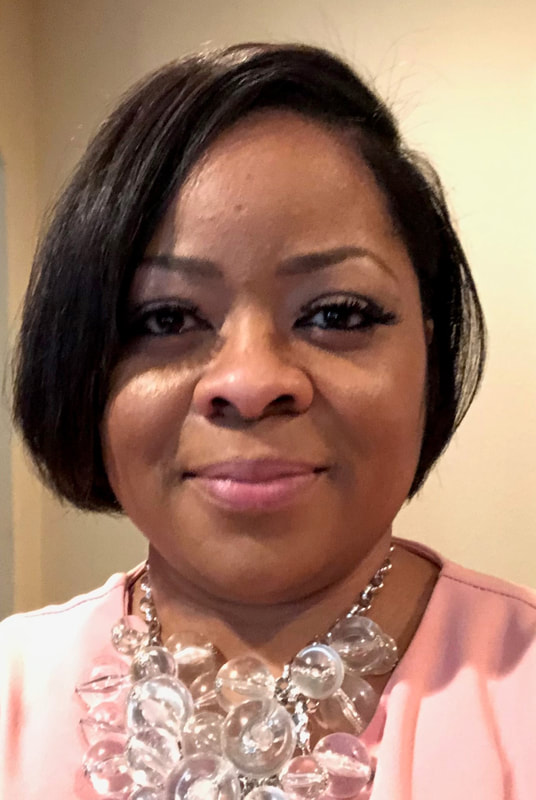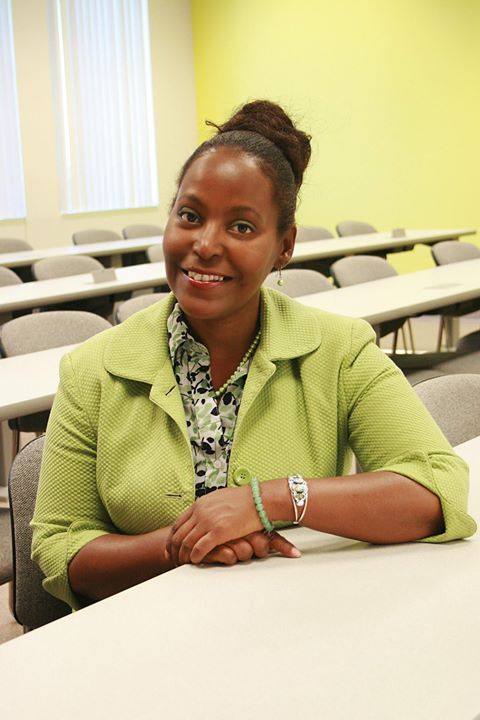African American Women and STEAM
Science, Technology, Engineering, Arts, and Mathematics
Scroll below to select research from the following scholars

Dr. Tawanna Sargent
Title: Adjunct Professor Of Business at Dallas Baptist University
Research Topic: The Under-Representation of African American Women In Information Technology in The Dallas/Fort Worth, Texas Area
Institution: University of Phoenix
Committee Chair: Dr. Lequisha Brown-Johnson
Abstract: The purpose of this phenomenological study was to explore the background and experiences of under-represented African American women in leadership positions in the information technology industry in Dallas/Fort Worth, Texas. The problem was that upper management had overlooked African American women who are well educated, qualified, and competing for leadership roles. 10 African American women were interviewed to obtain the lived experiences. The interview guide was used to understand and analyze data collected from the 10 participants on their lived experiences in senior-level positions to answer the following research question: How do under-represented African American women in a leadership position within the information technology industry describe their background and experiences while seeking senior management leadership positions? The interview questions were administered to provide findings that detailed the history of life, career path, and lessons learned. After coding the results, eight emergent themes were identified. These themes were influenced by Information Technology, organizational leadership practice, leadership development, career development, educational awareness, sacrifices, experience with racism and sexual orientation, and men promoted to leadership positions. The study indicated the increased amount of African American women who are not receiving the opportunity to break or crack the glass ceiling. Another study on African American women in the government sector could benefit other women who aspire to be in a senior leadership role in information technology, since this study only focused on 10 African American women in leadership positions in the information technology industry in Dallas/Fort Worth, Texas.
Title: Adjunct Professor Of Business at Dallas Baptist University
Research Topic: The Under-Representation of African American Women In Information Technology in The Dallas/Fort Worth, Texas Area
Institution: University of Phoenix
Committee Chair: Dr. Lequisha Brown-Johnson
Abstract: The purpose of this phenomenological study was to explore the background and experiences of under-represented African American women in leadership positions in the information technology industry in Dallas/Fort Worth, Texas. The problem was that upper management had overlooked African American women who are well educated, qualified, and competing for leadership roles. 10 African American women were interviewed to obtain the lived experiences. The interview guide was used to understand and analyze data collected from the 10 participants on their lived experiences in senior-level positions to answer the following research question: How do under-represented African American women in a leadership position within the information technology industry describe their background and experiences while seeking senior management leadership positions? The interview questions were administered to provide findings that detailed the history of life, career path, and lessons learned. After coding the results, eight emergent themes were identified. These themes were influenced by Information Technology, organizational leadership practice, leadership development, career development, educational awareness, sacrifices, experience with racism and sexual orientation, and men promoted to leadership positions. The study indicated the increased amount of African American women who are not receiving the opportunity to break or crack the glass ceiling. Another study on African American women in the government sector could benefit other women who aspire to be in a senior leadership role in information technology, since this study only focused on 10 African American women in leadership positions in the information technology industry in Dallas/Fort Worth, Texas.
To download the study click the link below!
| forestoftherain.pdf | |
| File Size: | 768 kb |
| File Type: | |
 @Lydiaross1
@Lydiaross1
Dr. Lydia Ross
Title: Director LEAD360process
Research Topic: African American Women in Science, Technology, Engineering and Mathematics (STEM)
Institution: Argosy University
Committee Chair: Dr. Kimanya Ards
Abstract: Fields that interest students as well as will bring them a high financial benefit in the job market are within STEM education. However, women, especially African American women, continue to experience high unemployment with limited economic opportunity as compared to men and women of other nationalities in the United States. The aim of the study was to encourage African American women to pursue STEM education to the PhD level and then obtain a leadership role in the STEM field? African American woman’s influence on future endeavors especially around scientific inventions and technological advances is extremely small. This means, as Americans, we will be lacking in the great wealth an African American woman’s perspective brings to technological advances and future inventions for better living (Prince, 2013). The study may allow a platform constructed of successful attributes an African American woman needs to successfully operate through the various different experiences faced as minority women underrepresented in STEM. The conceptual framework of this study follows the mega- community model. The methodology used in this phenomenological study is the interview approach. African American women experts in the STEM disciplines were interviewed using a 17 interview questions. The interviews answered the three research questions:
1. What are the barriers for African American women competing to earn a Master’s or STEM degree?
2. “What workforce barriers prevent qualified African American women in STEM from being assigned a decision making role?”
3. “What are the lived experiences of AA women working in a STEM industry?
Title: Director LEAD360process
Research Topic: African American Women in Science, Technology, Engineering and Mathematics (STEM)
Institution: Argosy University
Committee Chair: Dr. Kimanya Ards
Abstract: Fields that interest students as well as will bring them a high financial benefit in the job market are within STEM education. However, women, especially African American women, continue to experience high unemployment with limited economic opportunity as compared to men and women of other nationalities in the United States. The aim of the study was to encourage African American women to pursue STEM education to the PhD level and then obtain a leadership role in the STEM field? African American woman’s influence on future endeavors especially around scientific inventions and technological advances is extremely small. This means, as Americans, we will be lacking in the great wealth an African American woman’s perspective brings to technological advances and future inventions for better living (Prince, 2013). The study may allow a platform constructed of successful attributes an African American woman needs to successfully operate through the various different experiences faced as minority women underrepresented in STEM. The conceptual framework of this study follows the mega- community model. The methodology used in this phenomenological study is the interview approach. African American women experts in the STEM disciplines were interviewed using a 17 interview questions. The interviews answered the three research questions:
1. What are the barriers for African American women competing to earn a Master’s or STEM degree?
2. “What workforce barriers prevent qualified African American women in STEM from being assigned a decision making role?”
3. “What are the lived experiences of AA women working in a STEM industry?
To download the study click the link below!
| ross_final_dissertation_with_signatures__1_.pdf | |
| File Size: | 886 kb |
| File Type: | |

